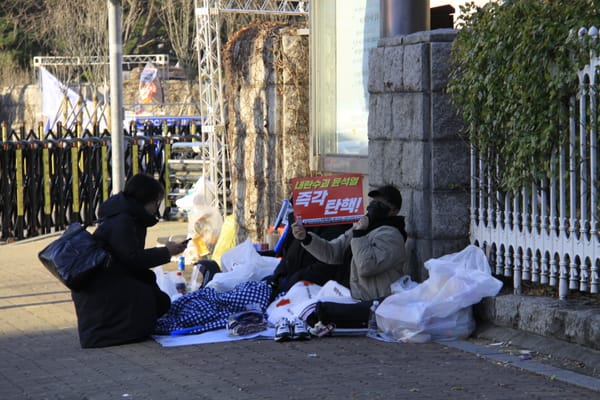Asia Undercovered Special: Social Media, Disinformation, and Activism
Social media has affected Asian society and politics in many ways. The region has been influenced by rapid digitization over the past decade, seeing the fastest growing smartphone use and, in many leading technological innovations.
But there are also challenges; in recent years, numerous countries have banned social media platforms to counter public protests and control information, while stories of political actors using content to manipulate public opinion and win elections are rife. But greater connectivity across the region has been used for good, too, with several using it to raise awareness of grassroots concerns.
In this Asia Undercovered Special Issue, we look at Social Media in Asia, from the challenge of disinformation, censorship, to how it can also elevate marginalized voices.
Manipulation and censorship
Philippines, Malaysia and Indonesia have seen general elections in recent weeks, with public opinion maneuvering on social media a concern as usual. Now TikTok, one of the world’s fastest-growing platforms, serves as a new tool. Nuurianti Jalli explores how the platform offers new unique features for dangerous political propaganda to reach the public (The Jakarta Post).
A special kind of hypocrisy in Nepal: this story by Ashish Dhakal in the Nepali Times on discrimination on social media, where the digital divide means that a majority of users belong to the traditionally dominant communities. Many who use their accounts to both push modern progressive thinking, but also to insult Dalits.
China’s new approach to deny committing genocide against Uyghurs in Xinjiang: paying young foreign social media influencers to make videos showing happy, dancing Uyghurs. But many vloggers are pushing back (Bahram Sintash and Nuriman Abdureshid Radio Free Asia).
India is seeing a rise in social media manipulation, with the latest gimmick being Tek Fog – an app that allows operatives to hijack social media and encrypted messaging platforms to amplify right-wing propaganda. Ayushman Kaul and Devesh Kumar explore the technology behind the app (The Wire India).
“Every time you do a difficult story to try to hold power to account, you have to be ready to get personally attacked” says Philippine journalist and Nobel Peace Prize winner Maria Ressa. In this interview by Nina Larson she talks about how social media threatens press freedom (Hong Kong Free Post).
Solutions stories
Rohingya refugees have sued the social media giant Facebook (now called Meta) for $150bn for fueling Myanmar hate speech that translated into real-world violence. A leak by a company insider argues that the company, despite knowing its platforms could harm users, chose growth over safety (Al Jazeera).
According to Aim Sinpeng, social media doesn’t just mean fake news and manipulation. In this interview by Sebastian Strangio for The Diplomat, she talks about examples where the mobilization power of social media has offered grassroots activists from across Southeast Asia a platform to drive progressive change.
In China, a short video of a woman chained in a door-less shack went viral and sparked a rare online revolt, fueled by mistrust and a perception that the government didn’t do enough to protect women. Li Yuan covers one of the biggest credibility challenges Chinese government has faced in recent months (NY Times).
A group of anonymous Chinese dissidents have had enough of Communist Party propaganda. Their campaign “The Great Translation movement” collects social media messages that support radical ideas and Russian war activities, and translates them into English, Spanish, Japanese, Korean and other languages (Chauncey Jung, The Diplomat).
Developments to keep an eye on
In Thailand, lockdown limitations have given birth to the country’s first virtual influencers. The market is expected to grow beyond the pandemic, the appeal being that unlike their human counterparts, they are scandal-free, more cost effective and versatile, writes Tan Tam Mei for The Straits Times.
India’s new microblogging site Koo has been making headlines for being the first platform to make its algorithms public and launching a self-verification feature. In conversation with Vaisakh E Hari at The Week, Koo co-founder and CEO Aprameya Radhakrishna talks about the future of social media disruption.
Southeast Asia has been and will continue to be the biggest market to use social media as a sales channel. Dashveenjit Kaur’s story in Techwire Asia looks at what this means for the region’s retail industry, the role of the pandemic in this transformation, and what trends businesses should note.
Asia Undercovered: Round-ups and in-depth analysis of the news, events, trends and people changing Asia, but not getting enough attention in the US media.



